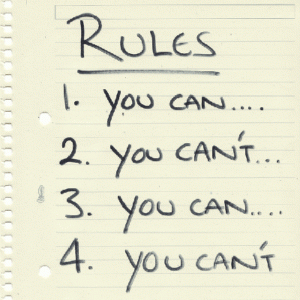Text Message Regulation | Carrier Compliance & TCPA Laws Regarding SMS

In light of the recent string of lawsuits surfacing as a result of the Telephone Consumer Protection Act (TCPA), shockwaves have been sent throughout the mobile marketing industry. Companies such as 20th Century Fox, Selling Source, Jiffy Lube, and most notably Papa John’s, have gotten in trouble with the law because of unsolicited SMS text messages. In fact, Papa John’s alone faces a $250 million class-action lawsuit for sending 500 thousand unwanted text messages to customers in early 2010. Jiffy Lube also just settled a $47 million lawsuit for sending text message spam to millions of consumers who had not consented to receiving the messages. The message from the FCC has been made clear; if you do not get written consent from your consumers, get permission through an esign app online, or get permission through a consumer contacting you first, you cannot text or contact them, period. If you do, your company will end up on the growing list of companies being taken to court for violating the FCC’s and TCPA’s rules.
The TCPA, passed by Congress and signed into law by President H. W. Bush in 1991, was initially designed to prevent automatic telephone dialing systems (ATDs) from spamming people’s telephones with unwanted calls. Most of you would refer to this as “telemarketing.” However, things have obviously changed since then with the rise of text messaging as a primary medium of communication and interaction among people. So now, after a ruling on the subject in Chicago, the TCPA applies to “text calls”, or as we know them, text messages. This means the days of sending bulk SMS text messages to databases of clients are over. You need to be smarter than that now.
A lot of companies for a long time did practice sending out text messages to invite their customers to opt-in using EBR (Existing Business Relationship). EBR was an exemption that stated that a business could contact a customer on their mobile phone as long as they had an existing business relationship. An existing business relationship is defined as “a customer giving you their mobile number in the last 90 days” while existing customers in last 180 days could be called or messaged. However, in February of 2012, the FCC amended the TCPA rule and eliminated the EBR completely. They also added SMS to the law, and this all still stands to this day.
Not only do you need to be aware of the TCPA law, but carriers like AT&T and Verizon have hired auditing companies that actively seek violations of the Mobile Marketing Association’s Best Practices including websites, social media, television, commercials, billboards, magazine ads, etc. Theses companies do nothing but try to find violations, so if your site is violating the Mobile Marketing Association’s Best Practices/Disclaimers, your short code could be disonnected from the servers.
Despite all of this, there are still ways to use SMS text messaging and your website to advertise to current and potential clients while still remaining compliant. We already know that you can’t text, call, or email any possible customers without their express written consent. So to get this consent, you can do one of three things. You can get their written consent on a piece of paper, you can get permission through an esign app online (electronic signature), or you can get permission through the consumer texting you first or calling you first. The best way to get consumers to contact you first is through a Call-To-Action (CTA).
CTAs are usually placed in highly visible places on your website, usually after blogs, on the homepage, or on anything else that a customer might want to contact you with questions about. You need to be aware of the TCPA’s rule on CTAs though. CTAs must claim that standard text messaging rates may apply, and that customers can unsubscribe at any time by replying STOP. Any other form will result in a violation. Remember, Anchor Mobile will help you be compliant.
The writing has been written on the wall; companies and businesses are going to have to adapt to the FCC’s and TCPA’s rules and regulations if they want to stay out of court. If you want to stay on the forefront of mobile marketing you need to adhere to this rules and regulations and be aware of any possible changes down the road. If you don’t, you could end up costing your company millions of dollars in lawsuit and settlement fees.








Leave a Reply
Want to join the discussion?Feel free to contribute!